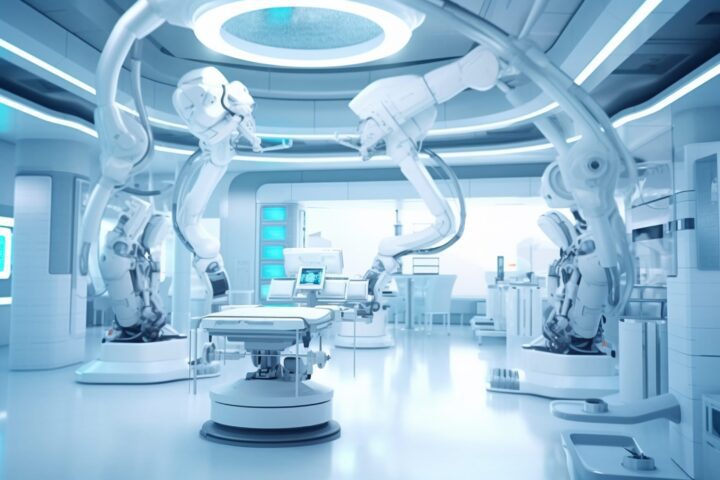In recent years, the integration of technology into our daily lives has extended beyond the confines of our ...
In an era of rapid technological advancement, the healthcare industry is experiencing a profound transformation, with innovations like ...
In the healthcare sector, the abundance of data generated daily presents both a challenge and an opportunity. This ...
Robotic surgery, also known as robot-assisted surgery, represents a groundbreaking innovation in the medical field. It merges advanced ...
In the world of healthcare, a one-size-fits-all approach is no longer sufficient. Each person has a unique combination ...
The Internet of Things (IoT) has ushered in a new era in healthcare, fundamentally transforming how patient care ...
Medical imaging has been a pivotal element in modern healthcare, allowing healthcare professionals to visualize and diagnose a ...
With the rapid pace of development in the medical field, telemedicine has been at the forefront of innovation. ...
Healthcare, as we have known it, is standing at the threshold of a sea change. Artificial Intelligence and ...
Artificial intelligence has grown very fast in recent times, getting along really powerfully with the fields of public ...




































